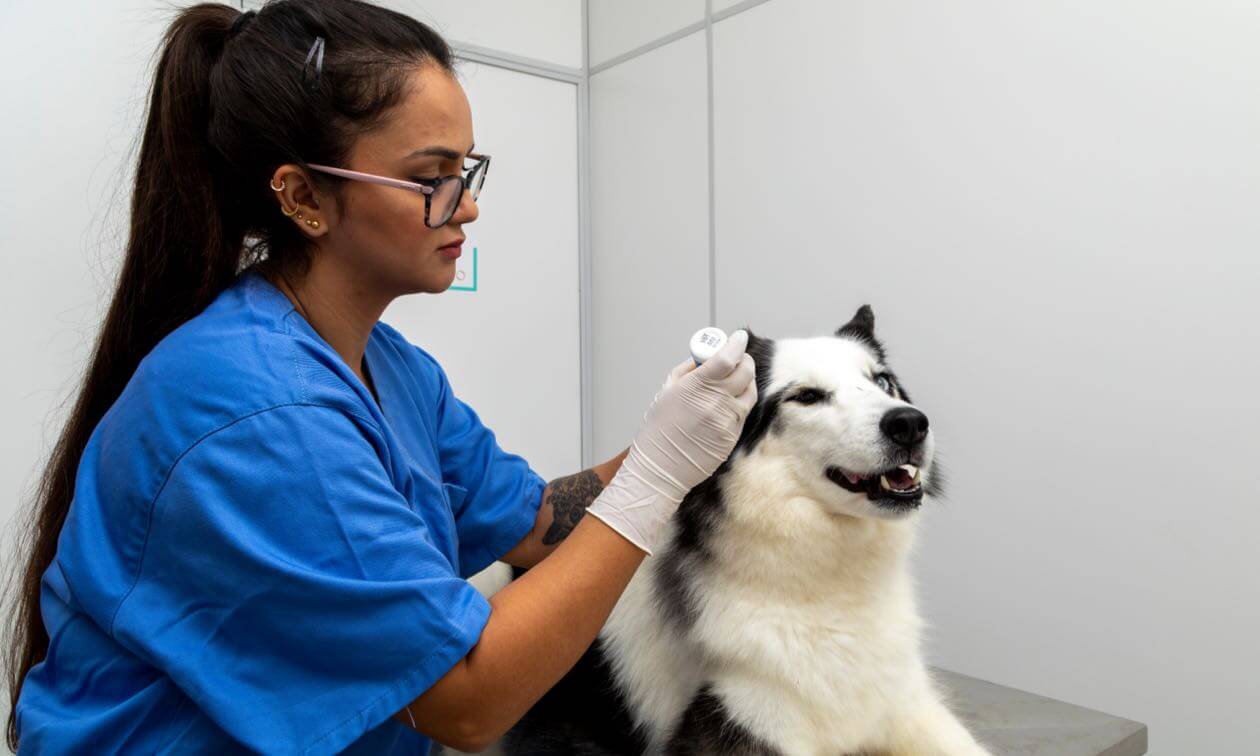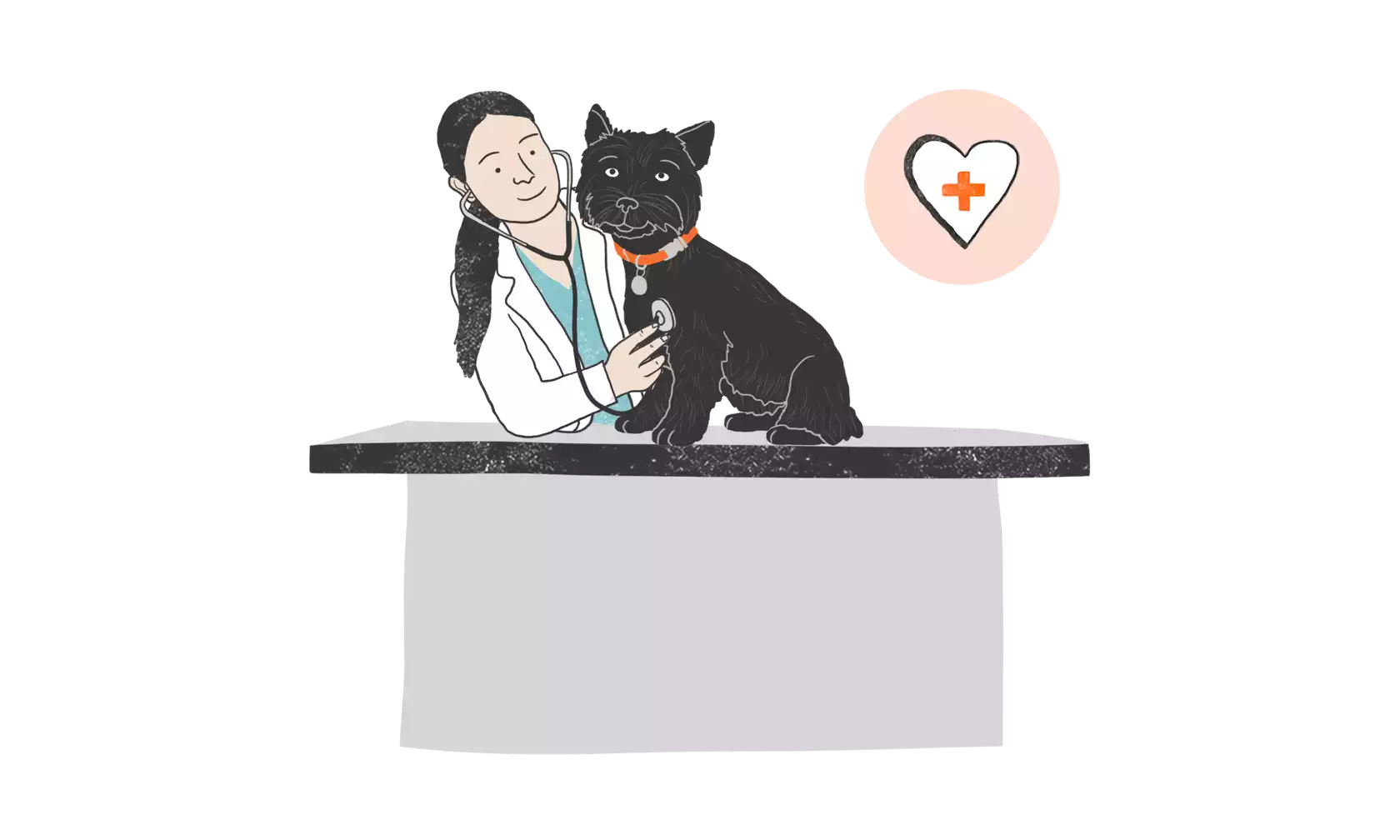Mobile veterinary clinics have been gaining popularity recently. In addition to lessening the stress and fear many pets experience in the car and the veterinary clinic, mobile options make veterinary care available to those who can’t easily leave their home. The result is increased accessibility, which means more dogs and cats get the health and wellness care they need to live their best lives.
What is a Mobile Veterinary Clinic?
Mobile veterinary clinics are veterinary hospitals on wheels that offer the convenience of at-home pet services. A licensed veterinarian and one or two veterinary technicians travel to your home and provide veterinary care. This is different from a veterinary house call, where the veterinarian usually comes alone and can only do basic exams and treatment, much like a human doctor would when making a house call.
This increasingly popular option for pet owners utilizes a motor vehicle specially equipped with medical and surgical equipment. Each state has its own governing regulations that determine the operation of the mobile clinic and what services can be provided. Most states require that the mobile clinic has a relationship with a stationary veterinary hospital that can provide emergency care, hospitalization, and surgical care.
What Services Are Offered by Mobile Veterinary Clinics?
Mobile veterinary clinics can offer various services similar to a traditional veterinary hospital, including:
- Wellness Examinations
- Sick Patient Exam
- Pediatric, Adult, and Senior Preventive Care Exams
- Behavioral Counseling
- Nutrition Consultation
- Weight Management
- Assess Lameness and Mobility
- Tick and Heartworm Testing
- Flea/Tick/Heartworm/Intestinal Parasite Management
- Vaccinations
- Blood Work
- Ultrasound
- X-Rays
- Wound Management
- Prescribe and Distribute Medication
- Euthanasia
While there are many services that mobile veterinary clinics offer, there are some exceptions. Those predominantly involve services that require general anesthesia or where a pet needs intensive care, like:
- Dental Cleaning and Extractions
- Surgery (Spay, Neuter, Mass Removal, etc.)
- Complicated Surgeries
- Hospitalization and Management of Critically ill Pets
Some larger mobile clinics can provide basic surgical care (spay, neuter, or minor mass removals) and dental care (cleanings, uncomplicated extractions).
House-call veterinarians may have additional limitations. Often, they have fewer supplies and equipment and may need to refer you to a veterinary hospital for some services.
How Do Mobile Veterinary Clinics Work?
An appointment is made with the mobile clinic just as it would be with a traditional veterinary hospital. An estimate for services can be requested before the appointment. Generally, a 24-hour notice is required to avoid a cancellation fee if an appointment needs to be canceled or rescheduled.
The average visit will last 30 to 60 minutes. An adult over the age of 18 needs to be present for the appointment and have the authority to make medical decisions. It is often required that pet owners refrain from using cell phones during the visit.
Sometimes, the examination, treatments, or procedures will be performed in the mobile unit. This requires that the vehicle has a safe, level, and legal place to park. A pet carrier is often requested for cats, and dogs should be on leashes to move from the home to the mobile unit. If the veterinarian performs services in the home, it’s helpful if pet owners provide a well-lit, quiet area with a soft surface.
Most mobile clinics request that only trained staff handle your pet during the exam and procedures to keep the pet, the doctor, the staff, and you safe. Children should be kept at a distance while the team is working on your pet so your pet does not become excited and the children do not get injured.
How Much Do Mobile Veterinary Clinic Appointments Cost?
Mobile veterinary clinic charges, such as examinations, treatments, and medications, are generally the same as stationary clinics. However, they usually charge an additional house call or on-site fee, depending on the area and distance from the stationary clinic. Payment is usually due at the time services are rendered.
What Are the Benefits of Mobile Veterinary Clinics?
There are several benefits to using a mobile veterinary clinic:
- You can avoid a car ride for those pets who get stressed or anxious in the car.
- It eliminates triggers for pets who get extremely anxious in the veterinary clinic, around strangers, or around other animals.
- If you have difficulty leaving home or finding transportation for you and your pet, you can still access care.
- Mobile clinic hours are often more flexible.
- The veterinarian can observe the pet’s behavior in a lower-stress environment, which can help them diagnose things like pain and discomfort.
- They can spend more time with the pet, which allows for a more comprehensive evaluation.
- They can observe the home and provide environmental recommendations for things like pet mobility, allergies, and weight management.
- This time together creates a stronger bond between the veterinarian, the pet(s), and the family.
ZPC-02507



